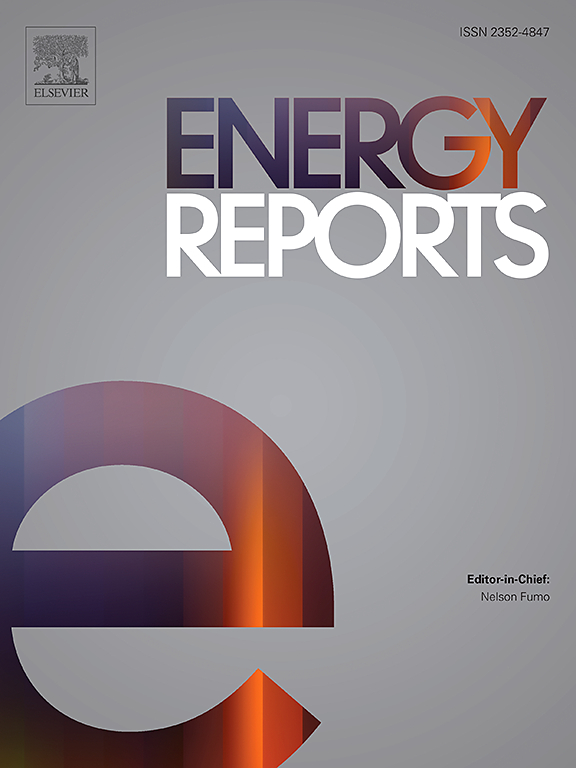Design and implementation of parabolic trough solar concentrator distiller
IF 4.7
3区 工程技术
Q2 ENERGY & FUELS
引用次数: 0
Abstract
This study addresses critical challenges in parabolic trough solar concentrators (PTSCs) for solar distillation, which is usually used in electrical production or cooking, focusing on optimizing performance, improving efficiency, and integrating innovative technologies for increase thermal efficiency. An advanced PTSC-based novelty hybrid desalination system combines both solar thermal energy and photovoltaic, suitable for use in isolated areas was developed, incorporating optical, thermal, and mechanical enhancements. Using SOLIDWORKS for 2D and 3D design and MATLAB for modelling the distribution and angles of solar radiation. The system has designed to track solar radiation effectively through a robust, automatic sun-tracking system. Experimental validation was conducted with three configurations: air, tap water, and saline water as heat transfer fluids. The experimental results demonstrated remarkable thermal performance, achieving a focal point temperature of 350 °C within 60–120 minutes. Tap water distillation yielded 150 liters over 10 hours with a pH of 6.77, while saline water exceeded 160 liters with a pH of 7.02, showing enhanced water purity. The system achieved an average thermal efficiency improvement of 70.3 %, attributed to the integration of tracking technology, minimized optical losses, and efficient heat transfer this is confirmed by statistical indicators such as MABE and RMSE values which is 0.34895 and 0.401 respectively. Besides that, thermal efficiency is excellent through to value of coefficient of determination (R2) about 0.99. The developed system offers portability, low-cost implementation depends on the cheap materials used, and adaptability to real-world climatic conditions, marking a significant advancement in solar thermal energy applications and sustainable desalination technologies.
求助全文
约1分钟内获得全文
求助全文
来源期刊

Energy Reports
Energy-General Energy
CiteScore
8.20
自引率
13.50%
发文量
2608
审稿时长
38 days
期刊介绍:
Energy Reports is a new online multidisciplinary open access journal which focuses on publishing new research in the area of Energy with a rapid review and publication time. Energy Reports will be open to direct submissions and also to submissions from other Elsevier Energy journals, whose Editors have determined that Energy Reports would be a better fit.
 求助内容:
求助内容: 应助结果提醒方式:
应助结果提醒方式:


